| | January 2025 • Issue No. 21 |
| The Latest at Harvard Law School's
Food Law and Policy Clinic |
| 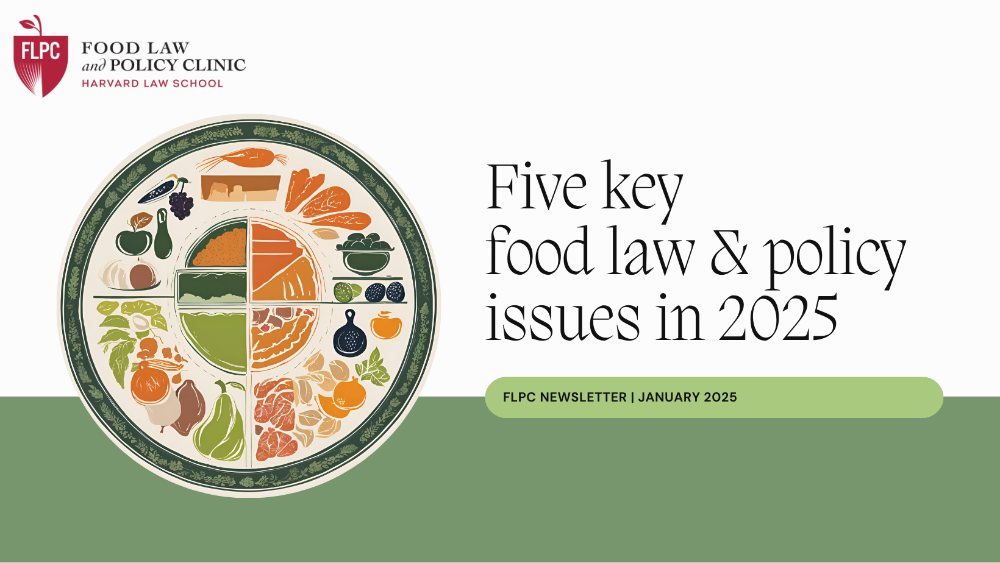 | A New Year, A New Landscape: 5 Food Law and Policy Issues We're Watching in 2025 It’s 2025, and this month, the United States swore in a new Congress and inaugurated its 47th President, Donald J. Trump. And with that comes a new food law and policy landscape. While priorities are undoubtedly shifting in Washington, we expect to see continued activity in the food law and policy space, bringing both new opportunities and challenges. Here are five issues the Food Law and Policy Clinic is watching in the new year. -
Climate and Conservation: While many climate initiatives face an uncertain future under the new Administration, there is still strong support within the agricultural sector for climate-smart and conservation policies. We continue to see support for conservation programs that provide economic benefits and food system resilience to support climate change mitigation and adaptation to the effects of climate change many producers are already seeing. -
Nutrition: The nominee for Secretary of the Department of Health and Human Services, Robert F. Kennedy Jr., has indicated a strong interest in the connection between nutrition and health, which may bode well for nutrition policy. These interests align with several policy issues that the clinic has worked on over the years, including improving the quality of the food supply, supporting increased nutrition education for doctors, innovating in Food is Medicine interventions, and improving regulation of food additives and chemicals. -
Food Access and Food Security: Vital federal food assistance programs such as SNAP may face new cuts or barriers to enrollment (as they did under the prior Trump Administration, and as seen in the draft Farm Bill passed by the House Agriculture committee last year). We will monitor and respond to these developments with the goal of protecting access to critical food access programs. -
Agriculture and Farms: We anticipate the new Administration will be supportive of agriculture and farmers generally. However, based on experiences in the prior Trump administration, it is likely to favor large-scale agricultural operations, which may pose challenges for small and medium-sized farmers and ranchers. We are also already seeing challenges to recent progress by USDA on supporting socially-disadvantaged farmers and ranchers and improving its record on civil rights initiatives. The clinic remains committed to identifying opportunities to support local and rural economies, farmers and ranchers of various scales, as well as historically underserved producers. -
Food Loss and Waste: Food loss and waste has been addressed as a bipartisan issue in the last three administrations and in Congress. The previous Trump Administration launched the “Winning on Reducing Food Waste Initiative,” an interagency collaboration that still exists and led to the development of the National Strategy for Reducing Food Loss and Waste and Recycling Organics. It also issued draft USDA FSIS guidelines on food safety for meat, poultry, and egg product donations, which were finalized last year. Additionally, the last Farm Bill, which was signed into law by President Trump, included many new provisions to fight food waste, including creation of the Food Loss and Waste Liaison position within USDA. We anticipate continued momentum reducing food loss and waste as a key issue impacting food access, the environment, and the economy. Across these issues areas, FLPC is committed to monitoring, analyzing and responding to policy developments, continuing to support our clients and community partners with real time analysis and recommendations, and uplifting food law and policy solutions that are good for people, the planet, and the economy. Read on for more details, insights, and updates on our work and the field. Please also stay engaged with us by subscribing to our listserv and follow us on social media. To a productive year,  Emily Broad Leib,
Faculty Director, Food Law and Policy Clinic (FLPC)
Faculty Director, Center for Health Law and Policy Innovation (CHLPI) |
|
|
|
|
| | | April Love joins Food Law and Policy Clinic as Clinical Instructor April Love joined the Food Law and Policy Clinic in January 2024 as a Clinical Instructor. Prior to joining FLPC, she served as the Policy Analyst for the Socially Disadvantaged Farmers and Ranchers Policy Research Center at Alcorn State University (The Policy Center), where she led the development of equity-centered policy recommendations to ensure farmers of color are prioritized in legislation and programming. The CHLPI Communications Team caught up with April to learn a little more about her interest in food law and policy. |
| |
|
| The Global Food Donation Policy Atlas longlisted for the Food Planet Prize The Global Food Donation Policy Atlas was one of 39 initiatives longlisted for the Curt Bergfors Food Planet Prize, selected out of nearly a thousand nominations. The Atlas is a project by FLPC and The Global FoodBanking Network that aims to address global food loss and waste and food insecurity by researching relevant laws and policies in countries around the world and recommending policy solutions. The shortlist of finalists will be announced in Spring and the winner will be announced in June. |
| | Building State-Level Momentum for Food is Medicine The Food Law and Policy Clinic, in partnership with the Health Law and Policy Clinic at CHLPI, has provided pro bono technical assistance since 2022 to organizations and government entities advancing state-level Food is Medicine (FIM) policies and programs. As part of a new State Food is Medicine Technical Assistance Project, supported by The Rockefeller Foundation, Builders Initiative and Walmart Foundation, we released a call for applications for long-term state technical assistance last year. While applications for our long-term FIM Technical Assistance Project are now closed, we continue to accept applications for short-term, targeted assistance. This support, available to community-based organizations, nonprofits, coalitions, and local, state, and tribal governments, includes expert consultation and a tailored deliverable. Applications will be accepted on a rolling basis. Please fill this form to request assistance. |
| |
|
| | |  | | 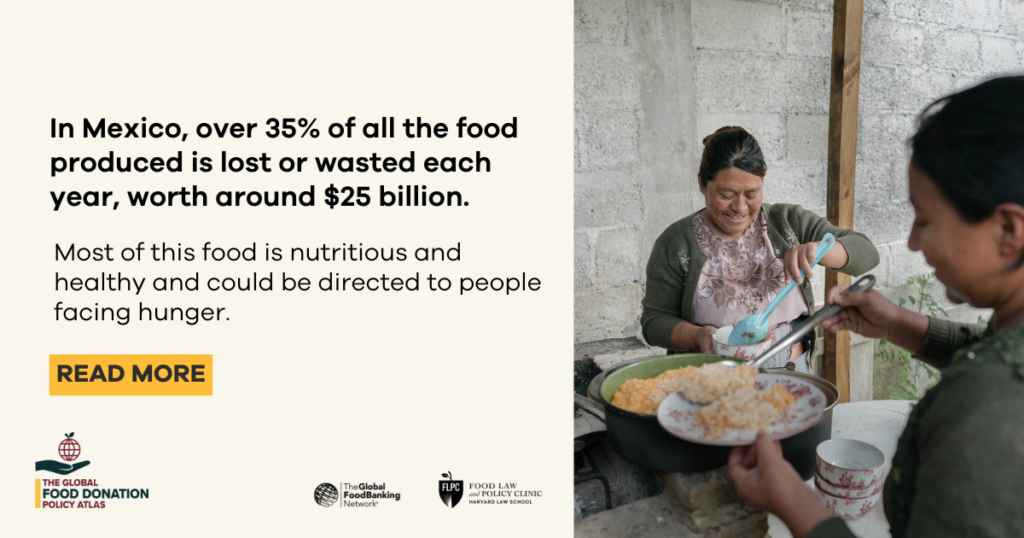 | State by State: New Toolkit Aims to Combat Food Waste in Mexico Last year, lawmakers in Mexico enacted a national "Law on Adequate and Sustainable Food,” that recognizes the connection between food loss and waste and the right to food. The law mandates that all possible measures should be used to avoid food waste and directs states to promote policies and actions to reduce food loss and waste and ensure the right to food. In October, FLPC and The Global FoodBanking Network released a new toolkit, developed in partnership with Banco de Alimentos Mexico (BAMX) to equip advocates and officials in Mexico with state-based legal and policy strategies to curb food loss and waste through food recovery and donation. The Toolkit was developed under the Global Food Donation Policy Atlas with support from The Walmart Foundation. |
| 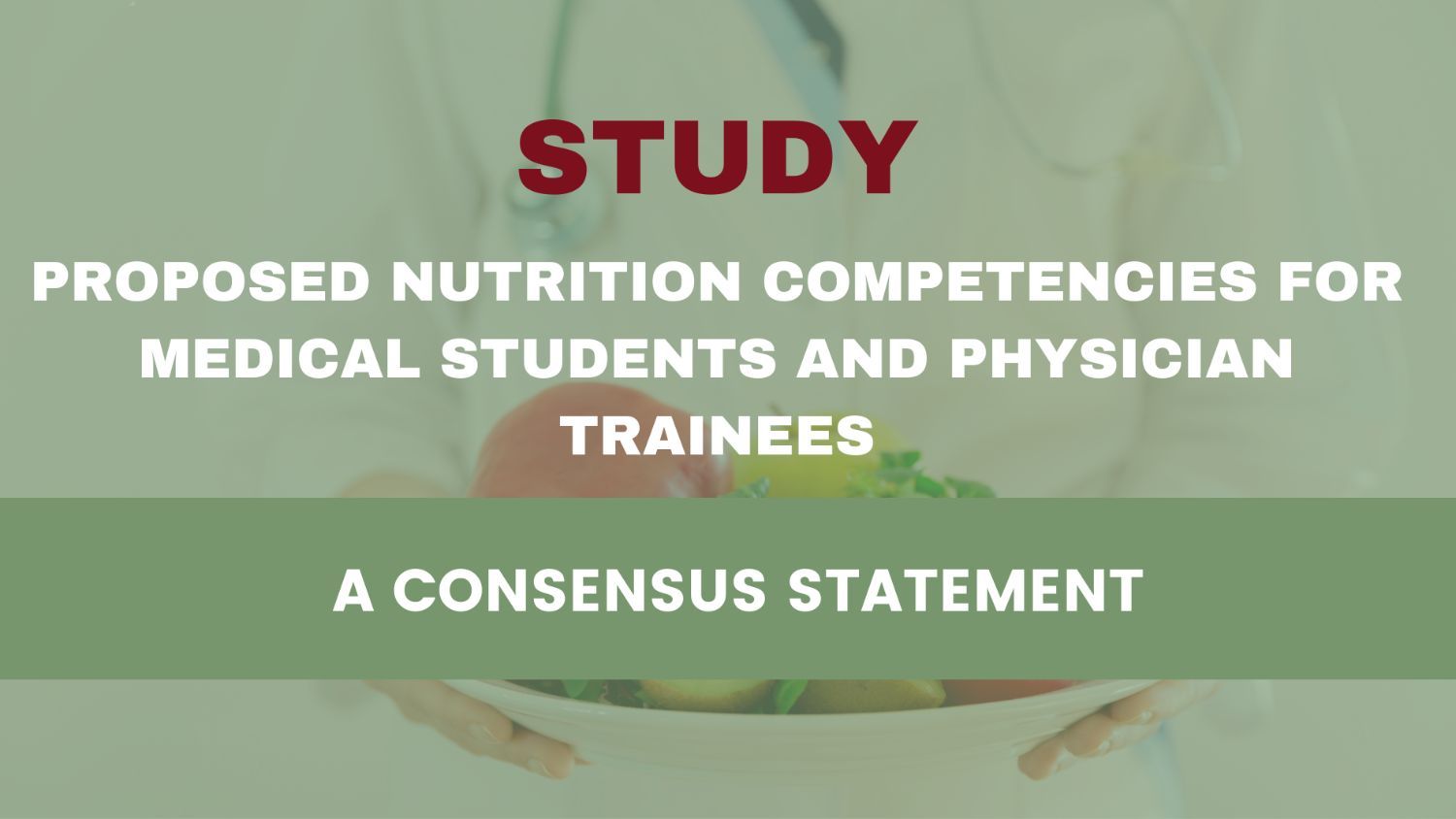 | Proposed Nutrition Competencies for Medical Students and Physician Trainees: A Consensus Statement In a new article in JAMA Network Open, a group of medical and nutrition experts recommends 36 competencies to address the concern that many U.S. physicians are not trained to advise patients about nutrition and food choices. Emily Broad Leib, Director of the Center for Health Law and Policy Innovation and the Food Law and Policy Clinic, and Trevor Findley, Clinical Instructor in the Food Law and Policy Clinic, are co-authors on this study. |
|
|
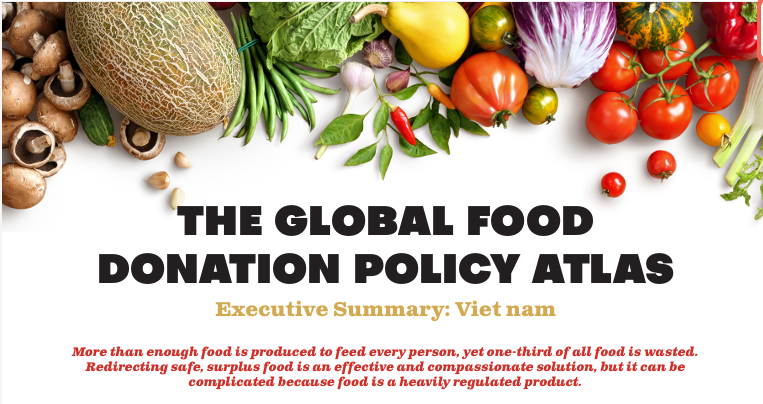 | Legal Guide: Vietnam Food Donation Law and Policy In partnership with Food Bank Vietnam, whose eight food bank sites have served nearly four million people since 2023, FLPC and The Global FoodBanking Network released new research and analysis of food donation laws and policies in Vietnam along with recommendations on how policymakers can reduce food waste, feed people experiencing food insecurity, and mitigate climate change. The research, released in September 2024, is now part of The Global Food Donation Policy Atlas, which analyzes laws and policies affecting food donation in 25 countries. The research was supported by the Lineage Foundation for Good. |
|  | Applying Legal And Clinical Quality Standards To ‘Food Is Medicine’ Food is Medicine interventions have emerged as an effective, common-sense solution to the diet-related health care crisis our nation faces. The leading cause of death in the United States is poor diet, stemming in part from high levels of food insecurity and insufficient intake of nutrient dense foods, like fruits and vegetables. As Food is Medicine programs scale and are becoming integrated into the healthcare system, quality standards are needed to preserve the efficacy of such programs. This article, authored by our colleagues in the Center for Health Law and Policy Innovation and the Food is Medicine Coalition, and published in Health Affairs Forefront, argues that quality standards are a critical next step in the development of Food is Medicine. |
|
|
|
|
| | | 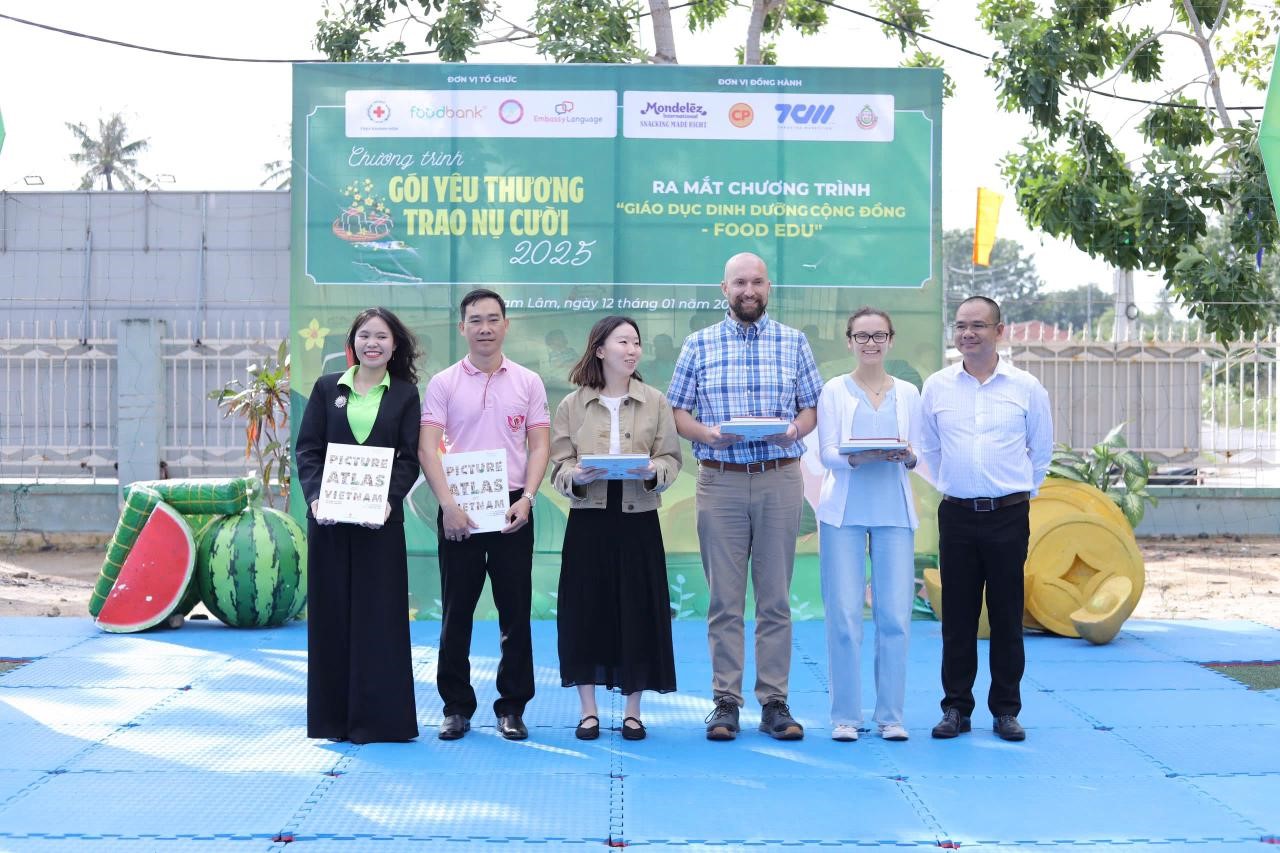 | FLPC In Vietnam FLPC staff and students recently traveled to Vietnam as part of our Global Food Donation Policy Atlas project. We met with our partner, Foodbank Vietnam, to explore policy opportunities for reducing food loss and waste and improving food security in the country. FLPC Student Michaela Greenlee shares insights from the trip in our blog. |
| 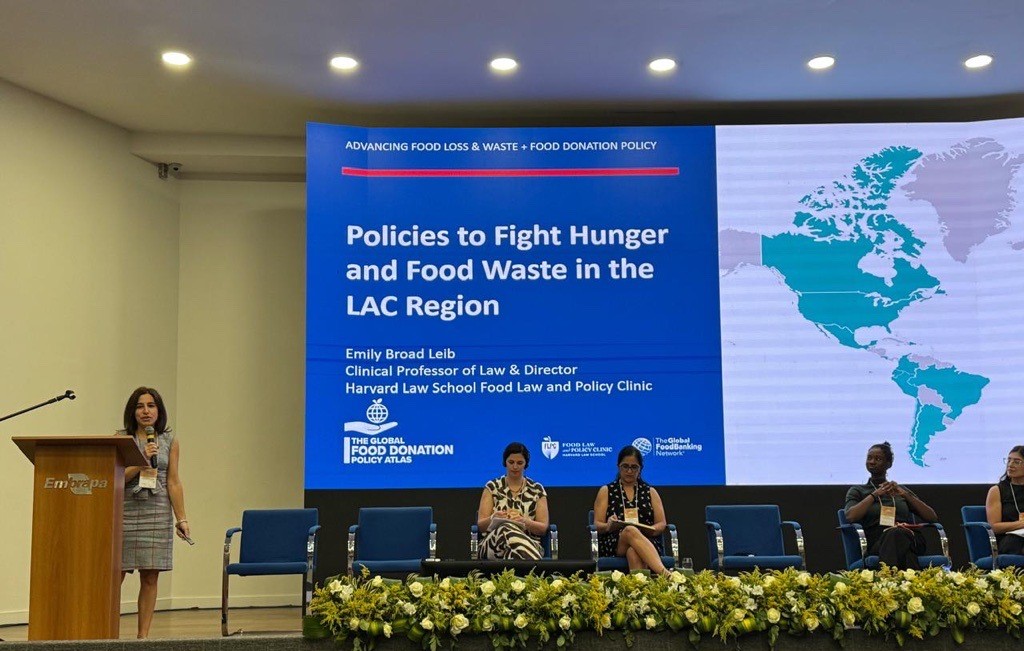 | | 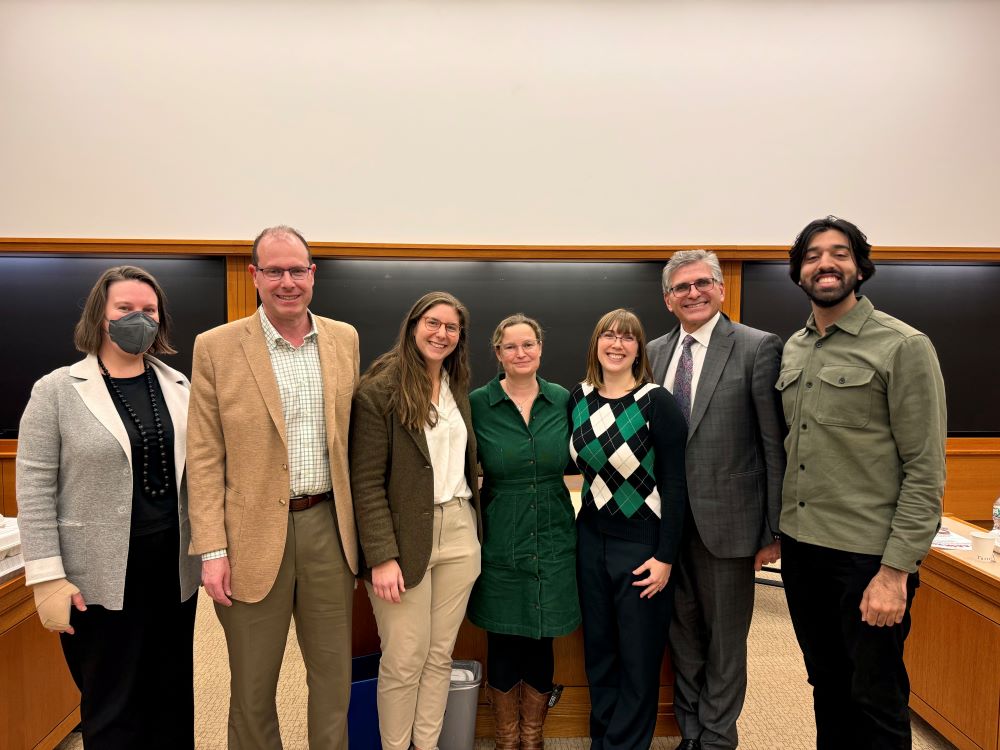 | Is Cash King? Insights from Cash Assistance Pilots Targeting Heath and Food Outcomes The Food Law and Policy Clinic (FLPC) in partnership with the Health Law and Policy Clinic (HLPC) hosted a multidisciplinary panel discussion exploring direct cash assistance programs and their potential to address individual and systemic health and food issues. Panelists from two cash assistance pilots – ChelseaEats and Pediatric RISE – shared learnings from the implementation and evaluation of these innovative programs, including how law and policy helps and hinders progress in this space. |
|
|
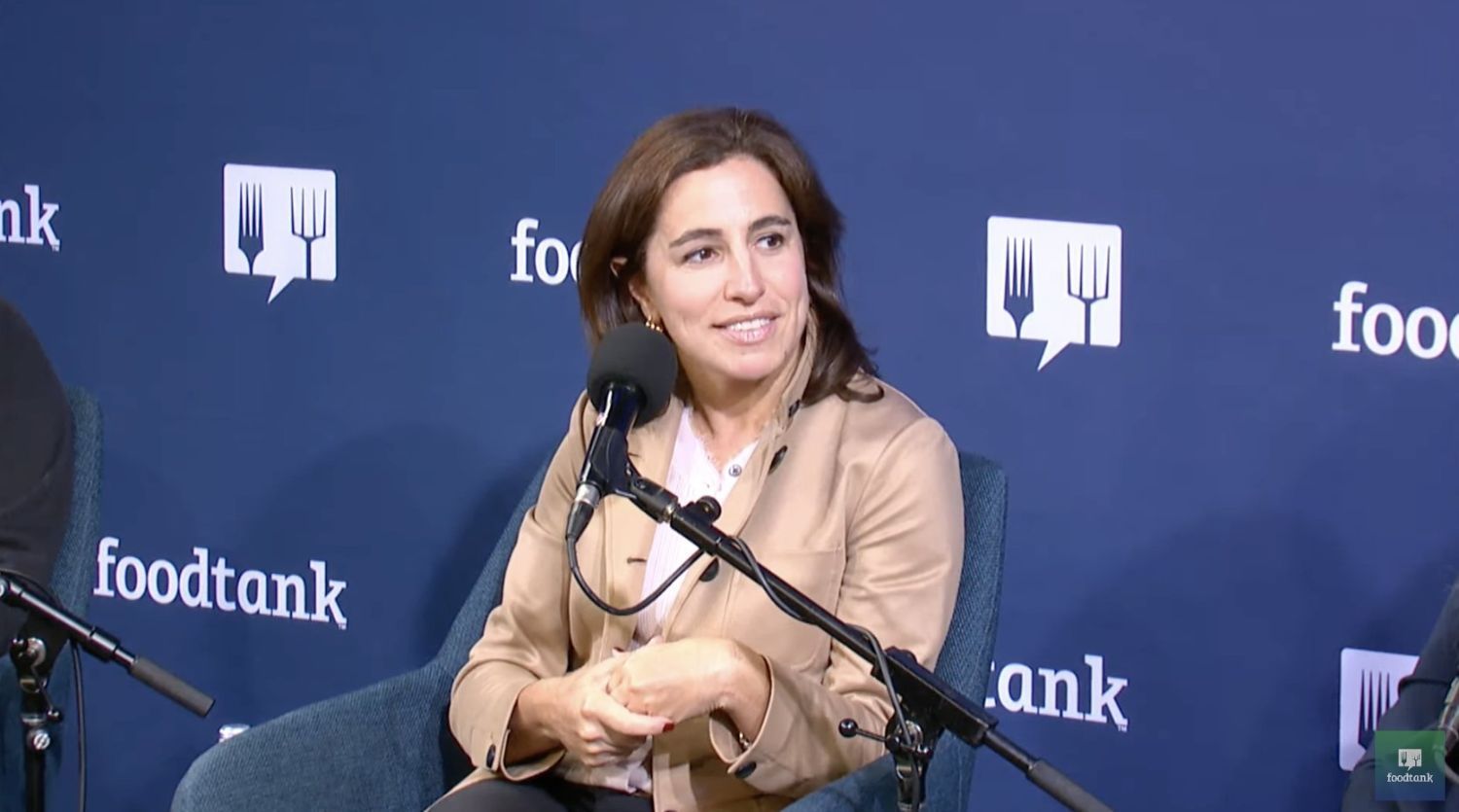 | | 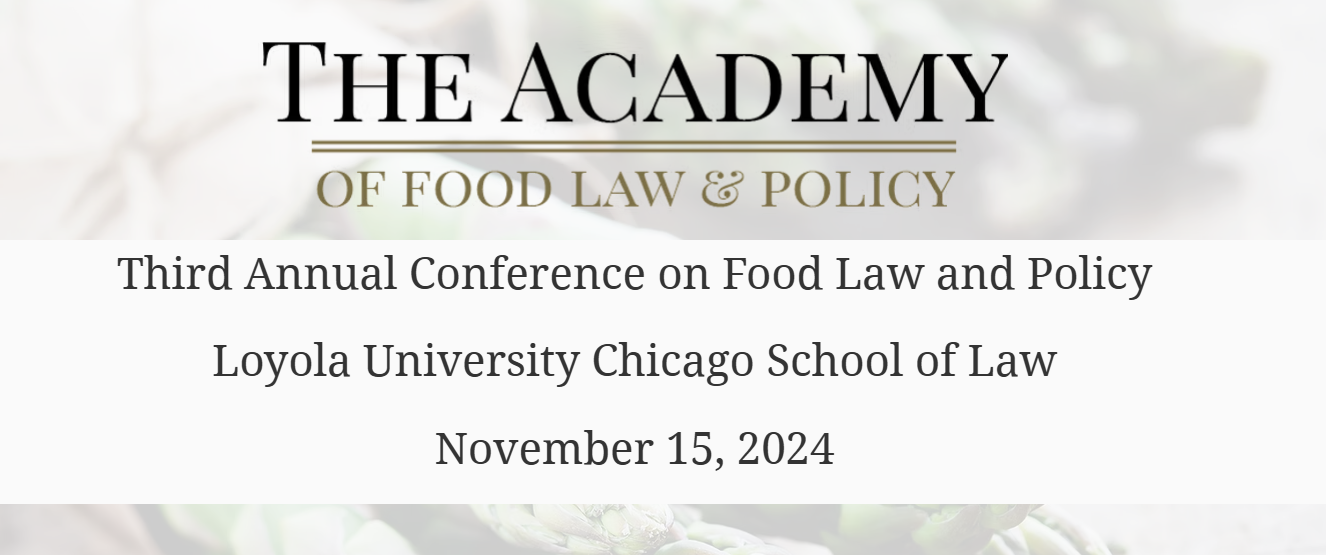 | The Third Annual Conference on Food Law & Policy FLPC Fellow Gray Norton helped organize and lead the Academy of Food Law & Policy’s first post-COVID, in-person convening of food and agricultural law professors at Loyola University Chicago School of Law. Colleagues Emily Broad Leib, Trevor Findley, and Heather Latino attended and spoke about their current projects and scholarship. |
| 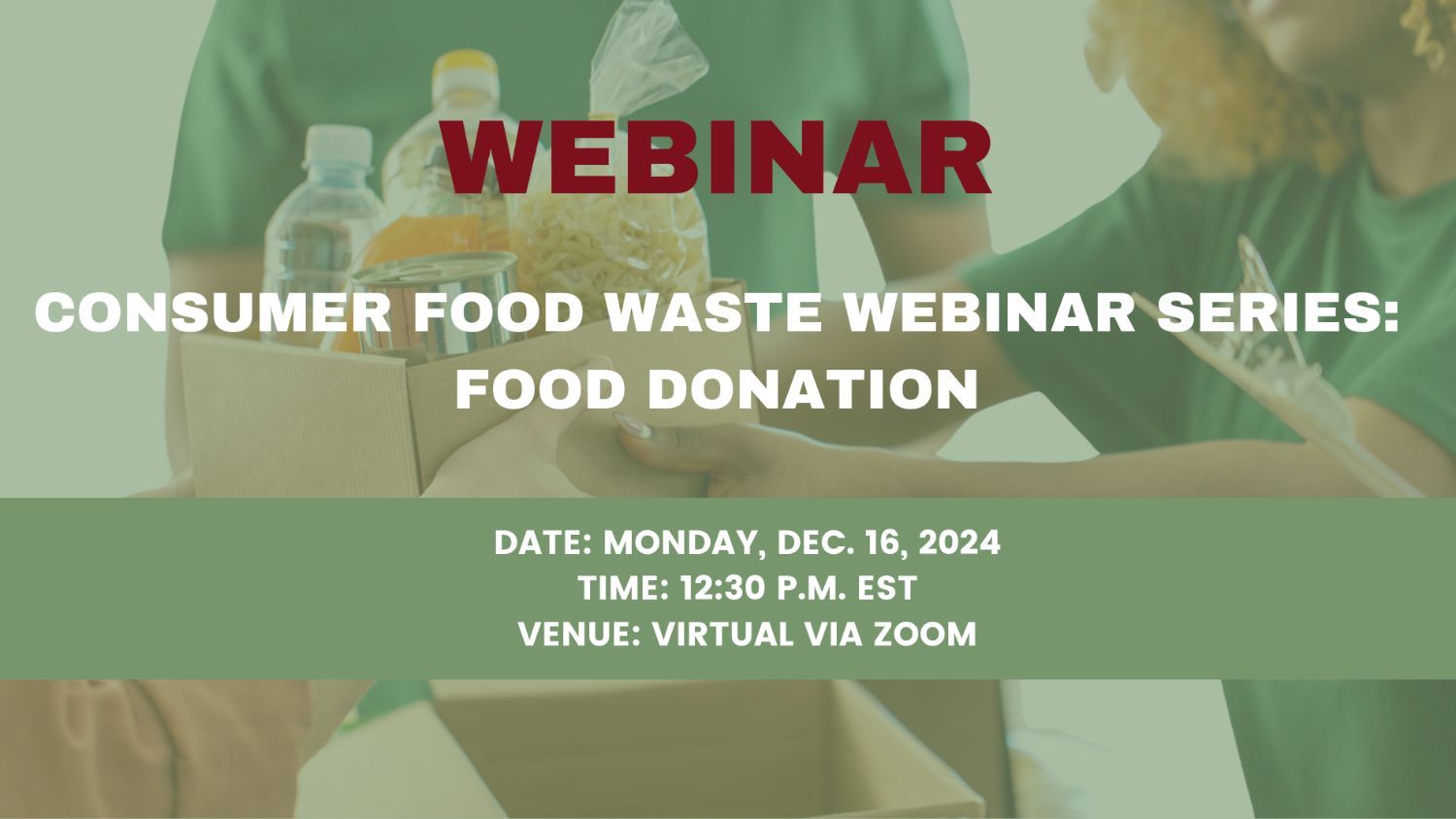 | Consumer Food Waste Webinar Series: Food Donation During this consumer food waste community of practice webinar, Clinical Instructor Heather Latino, highlighted the suite of policy resources that have been developed by the Harvard Law School Food Law and Policy Clinic in collaboration with the Zero Food Waste Coalition and how these resources can be put into action to strengthen state laws and regulations to prevent, rescue, or recycle food that would otherwise go to waste. |
|
|
| | | |
|
| | | FLPC Alumna Neha Sanghera joins Berkeley Food Institute as Policy Director Neha Sanghera recently completed her Master’s in Public Policy at Harvard Kennedy School of Government. While at HKS, Neha was a clinical student at Food Law and Policy Clinic, where she collaborated with the Zero Food Waste Coalition to address food loss and waste. As the new Policy Director, Neha will lead BFI’s policy program and play a key role in connecting faculty research with relevant policy discussions in California and Washington D.C. |
| | FLPC Alumna Noelle Musolino working on book "Except Agriculture: The Government's Idolization of Factory Farms" Noelle Musolino is a first-year associate at Wallace & Graham, a plaintiff's law firm in North Carolina that she first heard of when reading about their work suing factory farming operations. She is currently working on a book, "Except Agriculture: The Government's Idolization of Factory Farms." Before working as an attorney, Noelle was involved with the Food Law and Policy Clinic for two years as a clinical student and a research assistant. She is currently also working on a piece with Professor Emily Broad Leib about food waste and the international right to food. She shares insights into her book on the FLPC blog. |
| |
|
| | |
|
| | | The Harvard Law School Food Law and Policy Clinic (FLPC) serves partner organizations and communities by providing guidance on cutting-edge food system issues, while engaging law students in the practice of food law and policy. FLPC’s work focuses on increasing access to healthy foods, supporting sustainable production and food systems, promoting community-led food system change, and reducing waste of healthy, wholesome food. FLPC is committed to advancing a cross-sector, multi-disciplinary and inclusive approach to its work, building partnerships with academic institutions, government agencies, private sector actors, and civil society with expertise in public health, the environment, and the economy. Learn more about FLPC. |
| | |
|
| |
|
|